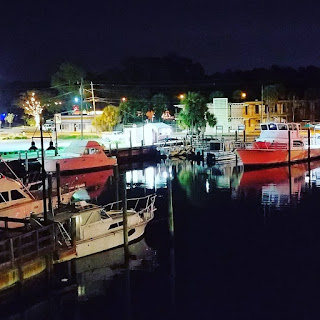Sultans of Swing
And Harry doesn't mind, if he doesn't, make the scene He's got a daytime job, he's doing alright- Dire Straits
I just watched a great video by Adam Neely. In it he discussed the different types of gigs .
Check out his YouTube channel, I highly recommend it.
He brings up some important clarifications being a gigging musician in NYC.
A type "A" venue may expect something closer to acoustic and the music played should be there for atmosphere.
A gig like this usually lasts between 1 and 4 hours. If it is a wedding, breaks may be frowned upon, even if pre-negotiated, so be prepared to have an interlude musician available.
Generally, money is negotiated up front. Some musicians have a standard contract, others do not.
It should almost be a live version of Muzak, and meant to be background noise. Dinner conversation if in a restaurant should dictate your volume levels.
There could be a very specific repertoire of Pop, Rock and or Country that you should follow.
A type "B" venue usually requires that a band is responsible for bringing people in and keeping them there. The pay could be dependent on a cover charge or a percentage of bar sales.
You will usually play half hour to an hour sets with a few minutes break. The house usually has a sound system, possibly a sound engineer and sometimes back line. The benefit to these types of venues is being to play what you want.
Obviously there might not be a clear distinction between these types of gigs and what is put into practice in one location might not work in another.
In my recent experience a 4 hour gig pays about $300 in Bay County. Split between 4 musicians that is 75 bucks each plus tips. When you add in a I-9 independent contractor form for tax purposes(remember to put those estimated taxes aside!) (but what tips?) I am in it for fun, not trying to feed myself, but I see the struggle of musicians that have thousands of dollars in equipment and several hours a week tied up.
There obviously could be a blend of these types of gigs, and different locales may have different customs. The range between hosting a jam session and supplying equipment to playing a gig on 30A could be quite vast indeed. If an artist has management or an agent that would also change the playing field.
In closing, you must find the balance that works for you. The balance between original songs and cover tunes is important too. Communicating all of this UP FRONT with the client venue is much better than hard feelings later.
Is there anything I missed?
What are the expectations of the local venues?
What are the expectations of local bands?
In closing, you must find the balance that works for you. The balance between original songs and cover tunes is important too. Communicating all of this UP FRONT with the client venue is much better than hard feelings later.
Is there anything I missed?
What are the expectations of the local venues?
What are the expectations of local bands?
Please put your thoughts on this in the comments.
© 2018 MATT COLEMAN ALL RIGHTS RESERVED
Stir up that MONKEYDUST!
© 2018 MATT COLEMAN ALL RIGHTS RESERVED



In answer to your questions...? Too much to type. ✌😎🎸🎶😂😂😂
ReplyDelete